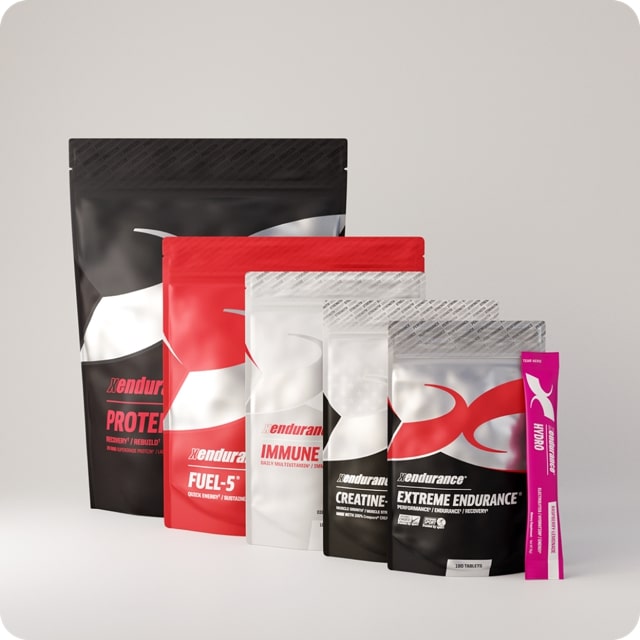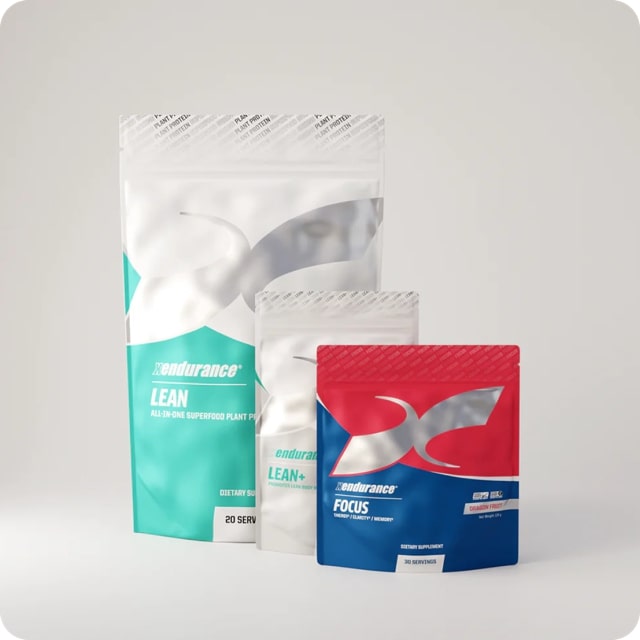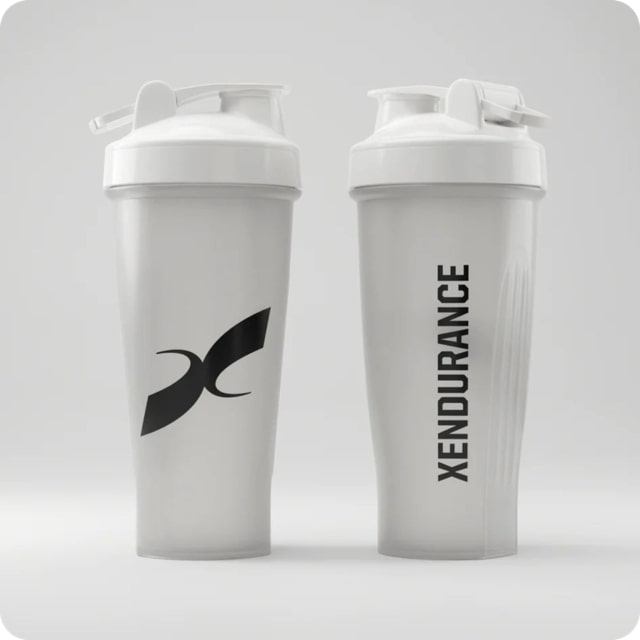When it comes to losing body fat, the journey can be challenging, especially for women due to hormonal and physiological differences from men. In recent years, protein has gained significant attention for its potential role in aiding weight loss and improving overall health. Read on for insights into the science behind protein's impact on women's body fat, and explore different types of protein, high protein meals for weight loss, and optimal consumption for maximum benefits. This blog highlights why reaching for a protein shake instead of carbs can be a smart choice for those looking to lose.
Understanding the Role of Protein in Fat Loss
Protein, one of the three macronutrients, is crucial for numerous bodily functions. It's not just about building muscles; it plays a vital role in weight management and fat loss. Scientific studies have shown that a higher protein intake can boost metabolism, reduce appetite, and alter several weight-regulating hormones. Incorporating high protein low fat foods into your diet can be particularly beneficial for these purposes.
Does Protein Effect Metabolism?
Protein consumption increases the body's energy expenditure. This is due to the thermic effect of food (TEF), where protein has a much higher TEF compared to fats and carbohydrates. Essentially, the body burns more calories to digest and metabolize protein, making a high protein diet for weight loss an effective strategy.
If you are a runner, there are several factors that need to be considered when trying to determine your energy expenditure.
- Intensity and Duration of the Run: Higher intensity or longer duration exercises may lead to a higher use of protein as an energy source. For endurance activities like long-distance running, the body might start utilizing more protein, possibly up to 5-15% of the total energy expenditure, particularly when glycogen stores are low.
- Nutritional Status and Diet: If a runner is consuming a low-carbohydrate diet, the body may rely more on protein for energy. However, with a well-balanced diet, the body primarily uses carbs and fats
- Overall Fitness Level: More trained individuals tend to have better metabolic efficiency, meaning they use energy sources, including protein, more effectively.
- Body Composition and Weight: The total energy expenditure, including that from protein, is also influenced by a person's weight and muscle mass.
Given these factors, it's challenging to provide an exact number of how much protein is burned during running without specific details like the duration and intensity of the run, dietary habits, and the individual's fitness level.
Will Protein Help You Feel Full?
Protein is more satiating than other macronutrients. A study published in the "American Journal of Clinical Nutrition" found that high-protein diets led to greater feelings of fullness, which can naturally reduce calorie intake and aid in weight loss.
Protein provides a sustained energy source and helps in maintaining muscle mass. Foods high in sugar or refined carbs, such as cookies, chips, or sodas, may offer a quick energy spike, but this is often followed by a rapid drop in blood sugar levels, leading to further cravings and overeating. The science shows that incorporating a protein shake or protein-rich foods like lean meats, legumes, eggs, or dairy into one's diet can create a lasting sense of fullness. High protein foods for weight loss are especially effective in curbing appetite and maintaining energy levels.

Types of Protein and Their Impact on Women's Health
Not all proteins are created equal. The source and quality of protein can influence its health benefits.
- Animal vs. Plant-Based Proteins: Animal proteins, such as meat, poultry, fish, and dairy, are considered complete proteins, containing all essential amino acids. Plant-based proteins, like legumes, nuts, and seeds, often lack one or more essential amino acids but can be combined to form a complete protein profile.
- Whey Protein: Whey protein, a byproduct of cheese production, is rich in branched-chain amino acids (BCAAs), particularly leucine, which is known for muscle synthesis and fat loss. Research indicates that whey protein can aid in reducing body fat while preserving lean muscle mass.
- Soy Protein: Soy protein is a plant-based option that has been shown to support cardiovascular health. It also contains isoflavones, which may have a positive effect on reducing menopausal symptoms in women.
How Much Protein Do Women Need For Fat Loss?
The Recommended Dietary Allowance (RDA) for protein is 0.8 grams per kilogram of body weight. However, for women aiming for fat loss, this number might need to be adjusted. Studies suggest an intake of 1.2 to 1.6 grams per kilogram can be more effective for weight management. Monitoring daily protein intake for women is essential to ensure it aligns with weight loss goals.
Balancing Protein Intake
While increasing protein intake can be beneficial, especially for muscle building, weight management, and overall satiety, it's crucial to balance it with other essential nutrients. Protein is just one piece of the complex nutritional puzzle that supports our body's myriad functions. A diet that overly focuses on protein at the expense of other nutrients can lead to nutritional deficiencies and health issues.
Carbohydrates, for instance, are vital for energy. They fuel our brain, kidneys, heart muscles, and central nervous system. Complex carbohydrates, found in whole grains, fruits, and vegetables, provide fiber, which aids in digestion and helps maintain steady blood sugar levels. When we increase protein intake, it's important not to drastically reduce these valuable carbohydrate sources.
Fats, often misunderstood and unfairly vilified, are essential for absorbing vitamins A, D, E, and K, and they provide essential fatty acids that our bodies can't make on their own. Healthy fats, such as those found in avocados, nuts, seeds, and olive oil, should be a regular part of a balanced diet. They play a crucial role in brain health, inflammation reduction, and may even help in managing weight.
Moreover, a varied diet ensures an adequate intake of vitamins and minerals. For example, vitamin C, found in citrus fruits and vegetables, is essential for the growth, development, and repair of all body tissues. It's involved in many body functions, including the absorption of iron, which is crucial for transporting oxygen in the blood. Iron, a critical mineral, is often found in meat, a high-protein source, but it's important to ensure its presence in one's diet, particularly for those who prefer plant-based protein sources.
Calcium and vitamin D are also essential, particularly for bone health. While dairy products, a primary source of calcium, are high in protein, those on a dairy-free diet need to seek alternative calcium sources like fortified plant milks or leafy greens. Vitamin D, which can be synthesized through sunlight exposure, is also available in fortified foods and supplements.
Another crucial aspect to consider is hydration. High protein diets, particularly those that include a lot of meat, can increase the body's need for water. Thus, adequate hydration becomes even more important as protein intake rises.
In essence, while protein is an important macronutrient, focusing exclusively on protein can disrupt the nutritional balance necessary for optimal health. A diet rich in a variety of nutrients - carbohydrates for energy, fats for nutrient absorption and brain health, vitamins and minerals for various bodily functions, and plenty of water for hydration - is key. High protein low fat meals can be part of this balanced approach. This holistic approach to nutrition ensures that the body receives all it needs to function effectively and healthily.
Additional Health Benefits of Protein for Women
Beyond fat loss, protein has several health benefits specifically for women.
- Muscle Maintenance and Growth: Protein is essential for maintaining and building muscle mass, which is crucial for a healthy metabolism and physical strength.
- Bone Health: Adequate protein intake is linked to better bone health, which is particularly important for women, especially as they age and become more prone to osteoporosis.
- Hair, Skin, and Nail Health: Proteins, especially collagen, play a vital role in the health of hair, skin, and nails, contributing to their strength and appearance.
Protein: the Key to Fat Loss for Women
If you're determined to shed those persistent pounds this year, consider protein your trusted partner in the quest. As a woman on the path to reducing body fat, you'll find that protein not only enhances your metabolism but also curbs your appetite and bolsters your overall health. By selecting the appropriate variety and quantity of protein, and harmonizing it with a spectrum of other vital nutrients, you can make strides in your weight loss journey while simultaneously fostering your holistic well-being.










Leave a comment
This site is protected by hCaptcha and the hCaptcha Privacy Policy and Terms of Service apply.